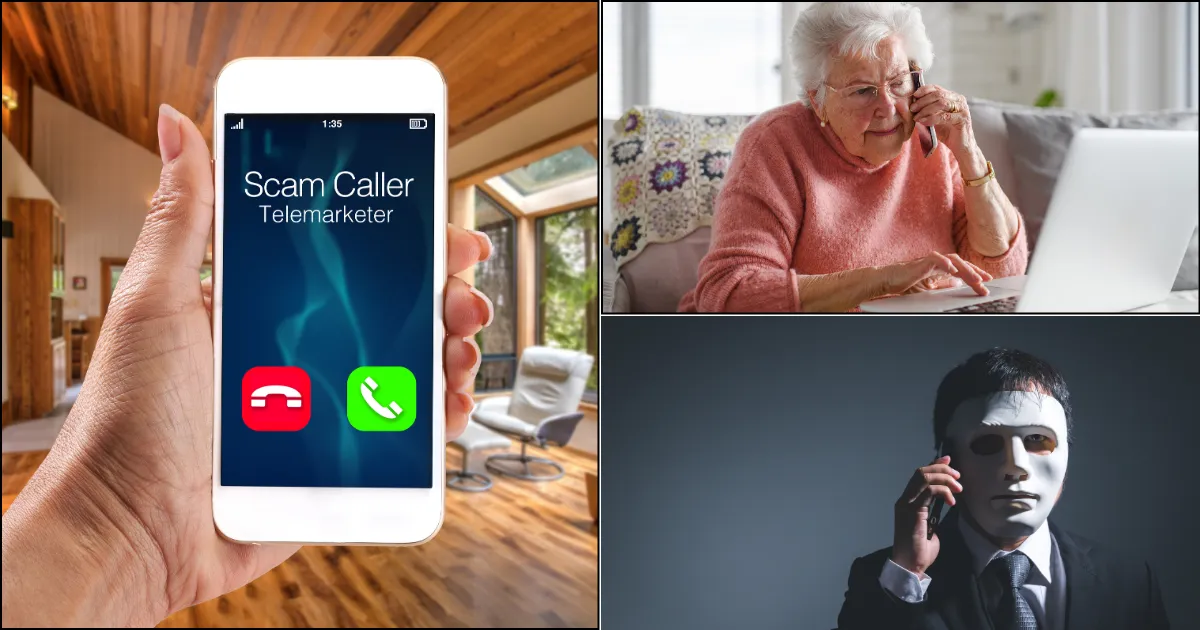In today’s digital age, phone scams have become increasingly sophisticated, targeting individuals from all walks of life. These scams often involve fraudsters posing as legitimate entities to steal personal information or money. Understanding how these scams operate and knowing how to protect yourself is crucial. This guide will help you identify common phone number scams and provide strategies to safeguard your personal information.
Table of Contents
Overview of Phone Number Scams and Their Prevalence
Phone scams are a widespread issue, affecting millions of people worldwide. According to the Federal Trade Commission (FTC), phone scams are among the most reported types of fraud. Scammers use various tactics, such as spoofing legitimate phone numbers, to trick individuals into answering calls. Once they have your attention, they may impersonate government officials, tech support, or even family members in distress. The goal is often to extract sensitive information or convince you to send money.
The prevalence of these scams is alarming. With advancements in technology, scammers can easily mask their identities and locations, making it difficult for authorities to track them down. This makes it essential for you to be aware of the signs of a scam call and know how to respond.
Common Phone Number Scams: Detailed Descriptions
Let’s delve into some common phone number scams associated with specific numbers. Understanding these can help you recognize potential threats.
209-379-4351: Is It a Scam?
Calls from 209-379-4351 have been reported as scams where callers claim to be from a government agency. They might threaten legal action if you don’t comply with their demands, often asking for personal information or payment via gift cards.
443-918-7139: Is It a Scam?
This number is frequently associated with tech support scams. Callers may claim your computer is infected with a virus and offer to fix it remotely. They aim to gain access to your computer and steal sensitive data.
406-589-0700: Is It a Scam?
Scammers using this number often pose as debt collectors. They use aggressive tactics to pressure you into paying a debt you may not even owe. Always verify the legitimacy of such calls before making any payments.
661-489-1523 Scam
This number is linked to IRS impersonation scams. Scammers threaten arrest or legal action unless you pay a supposed tax debt immediately. Remember, the IRS will never phone to ask for quick payment.
915-302-9516: Is It a Scam?
Calls from 915-302-9516 are often related to lottery or prize scams. The caller claims you’ve won a large sum of money but requires you to pay a fee upfront to claim your prize. Legitimate lotteries do not operate this way.
256-303-2406: Is It a Scam?
This number is associated with charity scams. Scammers exploit your goodwill by pretending to represent a charitable organization and asking for donations. Always check the charity’s authenticity before giving.
775-298-8035: Is It a Scam?
Scammers using this number may pose as utility company representatives, threatening to cut off your service unless you make an immediate payment. Utility companies typically send written notices before taking such actions.
How to Identify Scam Calls: Signs and Red Flags
Noticing the signs of a scam call can stop you from becoming a victim. Here are some warning signs to look for:
- Unsolicited Calls: Be wary of unexpected calls, especially if the caller asks for personal information or payment.
- Urgency and Threats: Scammers often create a sense of urgency, threatening legal action or service disconnection to pressure you into compliance.
- Asking for Personal Information: Real organizations will not request sensitive information like Social Security numbers or bank details over the phone.
- Payment through Untraceable Methods: Be careful if asked to pay using gift cards, wire transfers, or cryptocurrency, as these are common scam tricks.
- Caller ID Spoofing: Scammers can manipulate caller ID to display a legitimate number, so don’t rely solely on this for verification.
Protective Measures: Steps to Take if You Suspect a Scam Call

If you suspect a call is a scam, take the following steps to protect yourself:
- Hang Up Immediately: If something feels off, trust your instincts and end the call.
- Do Not Share Personal Information: Never give personal or financial information to unexpected callers.
- Verify the Caller: If the caller claims to be from a legitimate organization, hang up and contact the organization directly using a verified phone number.
- Use Call Blocking Features: Many smartphones and carriers offer call-blocking features to prevent unwanted calls.
- Report the Scam: Reporting scam calls helps authorities track and combat fraudulent activities.
Resources and Reporting: Where to Report Scam Calls and Seek Help
If you come across a scam call, report it to the right authorities. Here are some resources:
- Federal Trade Commission (FTC): File a complaint at ftc.gov/complaint.
- Federal Communications Commission (FCC): Report unwanted calls at fcc.gov/consumers.
- Local Law Enforcement: Contact your local police department if you feel threatened or have lost money to a scam.
- Better Business Bureau (BBB): Check for scam alerts and report fraudulent activities at bbb.org/scamtracker.
Recap and Encouragement to Stay Vigilant
Phone scams are a persistent threat, but by staying informed and vigilant, you can protect yourself and your loved ones. Remember to be cautious of unsolicited calls, verify the legitimacy of the caller, and report any suspicious activity. By taking these steps, you contribute to the fight against phone scams and help create a safer environment for everyone.
Incorporating these strategies into your daily routine can significantly reduce your risk of falling victim to phone scams. Stay alert, trust your instincts, and don’t hesitate to seek help if needed. Together, we can outsmart the scammers and keep our personal information safe.
Want to learn more about our family-friendly tech blog? Check out our “Hello Read Me” for an introduction to our mission, topics, and more.



















What do you think?
Show comments / Leave a comment